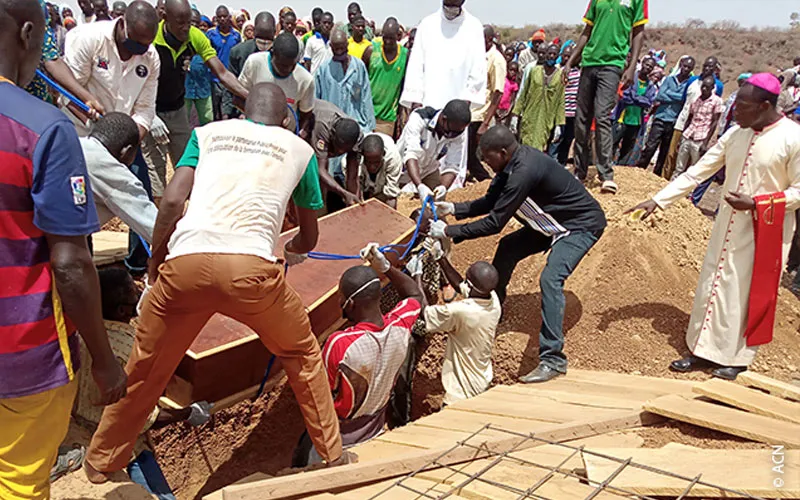“The exact number of casualties has yet to be determined, but the media are reporting between 100 and 170 victims. These include four Christians,” the Bishop says, describing the village as a “vibrant Christian community.”
According to the Local Ordinary of Dori Diocese, the area had become increasingly volatile, causing many people to flee even before the Solhan village attack happened.
“Just like everyone else in Burkina who is being targeted by terrorism, the Christians were overcome by fear. However, as Christians, they have more reason to fear a forced imposition of Islam. Their religious freedom and even their lives are at stake,” explains Bishop Dabiré.
The Catholic Church leader further adds that those who attacked the village and the main motive of their attack are yet to be identified.
“Who carried out the attack and for what reason has yet to be determined. However, the most plausible explanation is that it was the armed groups who have been terrorizing the country since 2015. This is another of their atrocities and their way of showing their strength and getting people to talk about them,” says the Burkinabe Bishop.
He says that for a number of years, Islamic terrorists have been attacking the country focusing their aggression on the Northern and Eastern parts of the West African nation, adding, “Burkina has become the target. We are the neighbours of Mali and Niger, countries that are facing similar problems. The attacks follow the logic of conquest.”
Bishop Dabiré however dispels claims that there is a religious conflict between Christians and Muslims in the country.
“The country is being attacked by diverse groups that use Islam for propaganda or for mobilization. The Islam of the armed groups is not the Islam of our brothers. The Muslims of Burkina are themselves targets,” the Bishop explains.
While championing for continuous inter-religious dialogue to end the attacks, the Bishop expresses his concern over the effects of war on communities specifically referring to the rising cases of human displacement.
“We have to hope that a dialogue between the religions can help solve the country’s problems. What comes to mind here is the refugee issue. In the last two months, the numbers have risen dramatically due to the resumption of attacks with many victims,” explains Bishop Dabiré.








